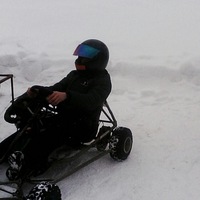
Плебеи, Патриции, Весталки, Ликтор, Сенат, Народное собрание, Тарквиний, Ромул, Палатин, республика
,консул, народный трибун, право вето. Дать определения. Прошу помогите! 0
0
 0
0
Ответы на вопрос
 Внимание! Ответы на вопросы дают живые люди. Они могут содержать ошибочную информацию, заблуждения, а также ответы могут быть сгенерированы нейросетями. Будьте внимательны. Если вы уверены, что ответ неверный, нажмите кнопку "Пожаловаться" под ответом.
Внимание! Ответы на вопросы дают живые люди. Они могут содержать ошибочную информацию, заблуждения, а также ответы могут быть сгенерированы нейросетями. Будьте внимательны. Если вы уверены, что ответ неверный, нажмите кнопку "Пожаловаться" под ответом.

Плебеи (от лат. plebs, plebejus — «простой народ») - это население Др. Рима, первоначально не наделённое политическими правами.
Патриции (от лат. patricius, от pater — «отец») - это лицо, которое принадлежало к исконным римским родам, которые составляли правящий класс, держали в своих руках общественные земли.
Весталки (от лат. virgo vestalis, Vestālēs, ед. число — Vestālis) - жрицы богини Весты в Др. Риме, которые пользуются большим почётом и уважением.
Ликтор (от лат. lictor[) - особый вид госслужащих.
Сенат (от лат. senātus) - государственный совет, высший орган управления в Др. Риме.
Народное собрание - орган государственной власти.
Тарквиний (от лат. Lucius Tarquinius Superbus или Тарквиний II) - последний (по римскому приданию), седьмой царь Др. Рима.
Ромул (от лат. Romulus) - основатель Рима и первый римский царь (по мифам древних римлян)
Палатин (от лат. Mons Pălātīnus, Pălātĭum) - одно из самых древнезаселенных мест в Риме, центральный из семи главных холмов Рима высотой 40 метров.
Республика (от лат. res publica — «общее дело») - государственный строй, при котором верховная власть принадлежит выбранным на определённый срок органам власти.
Консул (от лат. consul) - это название высших правительственных лиц в древнем Риме.
Народный трибун (лат. tribunus plebis, plebei или plebi) - одно из самых важных и своеобразных римских учреждений.
Право вето - вето (от лат. veto запрещаю) запрещение, блокирование или отказ дать согласие на принятие законопроекта или предложения в области политики.
---
Надеюсь помогла (.❛ ᴗ ❛.)
 0
0
 0
0

Roman Republic: Key Terms and Definitions
The Roman Republic was a period in ancient Roman history that lasted from 509 BCE to 27 BCE. During this time, Rome was governed by a combination of elected officials and assemblies. Here are some key terms and definitions related to the Roman Republic:
1. Plebeians: The plebeians were the common people of ancient Rome. They made up the majority of the population and were not part of the aristocratic elite. The struggle for political and social rights between the plebeians and the patricians, the aristocratic class, was a significant feature of the early Roman Republic.
2. Patricians: The patricians were the aristocratic class in ancient Rome. They held most of the political power and were the descendants of the original senators appointed by the kings of Rome. The patricians controlled the government and held important positions in the Roman Republic.
3. Vestal Virgins: The Vestal Virgins were priestesses of the Roman goddess Vesta. They were chosen from noble families and were responsible for maintaining the sacred fire of Vesta, which symbolized the eternal life of Rome. The Vestal Virgins held a respected and influential position in Roman society.
4. Lictors: Lictors were attendants or bodyguards of high-ranking Roman officials, such as consuls and praetors. They carried fasces, which were bundles of rods with an axe, symbolizing the power of the state. The number of lictors accompanying an official indicated their rank and authority.
5. Senate: The Senate was the most powerful political institution in the Roman Republic. It was composed of around 300 members, mainly from the patrician class. The Senate advised the magistrates, passed laws, and controlled the finances and foreign policy of Rome.
6. Popular Assembly (Narodnoe Sobranie): The Popular Assembly, also known as the Comitia Tributa, was an assembly of Roman citizens that represented the plebeians. It had the power to pass laws and elect certain officials. The Popular Assembly played a crucial role in the political life of the Roman Republic.
7. Tarquin: Tarquin refers to the Tarquinian dynasty, a ruling family in ancient Rome. The last three kings of Rome belonged to this dynasty: Tarquinius Priscus, Servius Tullius, and Tarquinius Superbus. The overthrow of Tarquinian rule led to the establishment of the Roman Republic.
8. Romulus: Romulus was the legendary founder and first king of Rome. According to Roman mythology, he and his twin brother Remus were abandoned as infants and raised by a she-wolf. Romulus eventually killed Remus and became the sole ruler of Rome. He is credited with establishing many of Rome's institutions.
9. Palatine: The Palatine Hill is one of the seven hills of Rome and was the center of the city in ancient times. It was home to the wealthy and influential families of Rome, including the emperors. The term "Palatine" is also used to refer to the imperial palace on the hill.
10. Consul: Consuls were the highest-ranking elected officials in the Roman Republic. There were two consuls elected annually, and they held executive and military powers. Consuls presided over the Senate, commanded the Roman army, and acted as the chief magistrates of Rome.
11. Tribune of the Plebs (Narodny Tribun): The Tribune of the Plebs was an official elected by the plebeians to protect their interests and rights. They had the power of veto, which allowed them to stop or delay legislation proposed by other officials. The Tribune of the Plebs played a crucial role in balancing the power between the patricians and plebeians.
12. Veto: The veto was a power held by certain officials, such as the Tribune of the Plebs, to reject or block legislation proposed by others. The veto was an important tool for protecting the rights and interests of different groups within the Roman Republic.
Please let me know if you have any further questions!
 0
0
 0
0
Похожие вопросы

Топ вопросов за вчера в категории История
Последние заданные вопросы в категории История
-
Математика
-
Литература
-
Алгебра
-
Русский язык
-
Геометрия
-
Английский язык
-
Химия
-
Физика
-
Биология
-
Другие предметы
-
История
-
Обществознание
-
Окружающий мир
-
География
-
Українська мова
-
Информатика
-
Українська література
-
Қазақ тiлi
-
Экономика
-
Музыка
-
Право
-
Беларуская мова
-
Французский язык
-
Немецкий язык
-
МХК
-
ОБЖ
-
Психология
-
Физкультура и спорт
-
Астрономия
-
Кыргыз тили
-
Оʻzbek tili






















